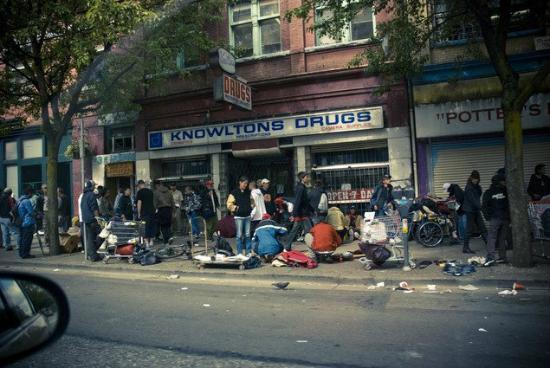
RAIL SIDINGS
June 4, 2018
“loonie toonie”
The 7:00 to Vancouver
My Vancouver friends would tell me that I was staying in probably the worst neighborhood in the city. From the train station to my hotel, the homeless roam their streets. Outside my hotel, the encampments are the transit residences to clusters of people, huddling, sharing and, in general, just looking after each other.

“can you tell me if the old age pension checks are in?”
I do not find the homeless to be dangerous; they are simply beaten. As I walk past, I am no more concerned for my safety than I would passing any stranger on a city street. It’s the same in Portland, my other Amtrak destination out of Seattle to the south. Homeless are somehow bound to trains here in North America the way they are not in Europe. And it may be by now after multiple train trips to both cities here, the homeless are growing as accustomed to my presence as I am to them. On this trip to Vancouver, a man approached me, not to panhandle, but to inquire, “Do you know if the the old age pension checks are in?” I took it as a matter of pride that I might be accepted into the life of the street; my Goodwill-bought sartorial splendor providing just the right element of threadbare for entry into this world of want.
For that is what I believe the world of the homeless to be: a world of want. And the want is for hope. The hope that “want” will someday be replaced by “have.” In that regard, the homeless and the widow are linked. For a year I have lived with the want that losing Carolyn had brought upon me. The want of companionship, of sharing, of giving oneself in love wholly to another. For most of this past year that want inspired no hope it could ever be otherwise again. I was wrong, as it has turned out. About that, more in the coming weeks.
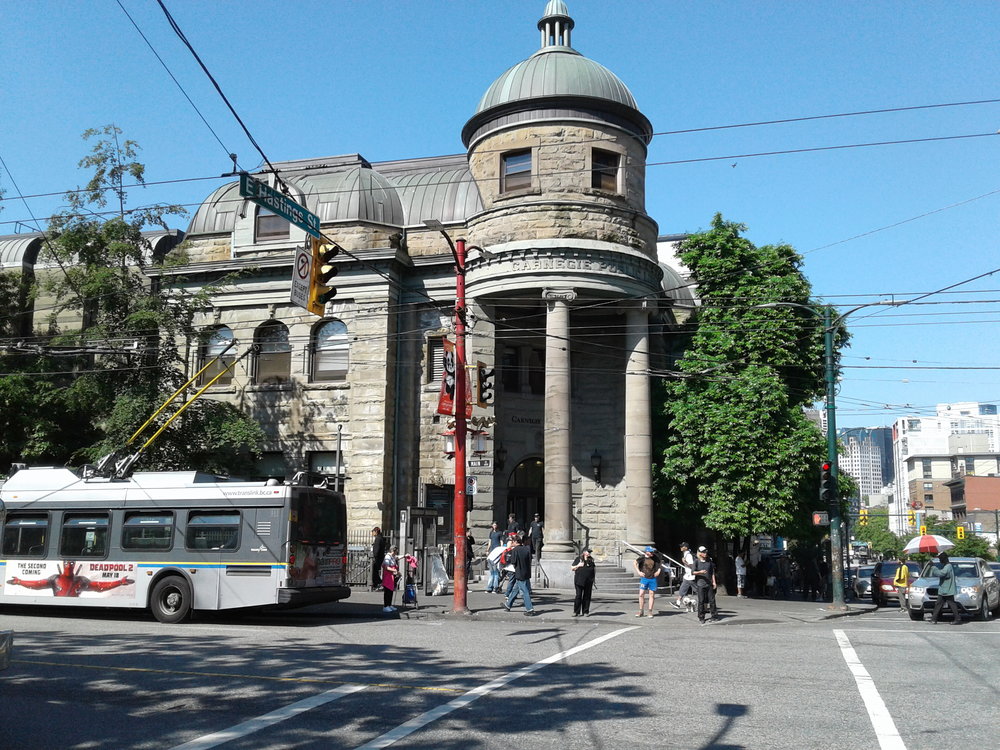
Public library, now a community center
So I know first hand now what the homeless of E. Hastings St, Vancouver don’t have. Still don’t: that hope is real, possible and attainable. And it occurred to me, as I walked to the station to catch my train back to Seattle that there might be a small way I might convey that real sense of hope to my new confreres, who’ve already have shown trust that I might know whether the old age checks are in.
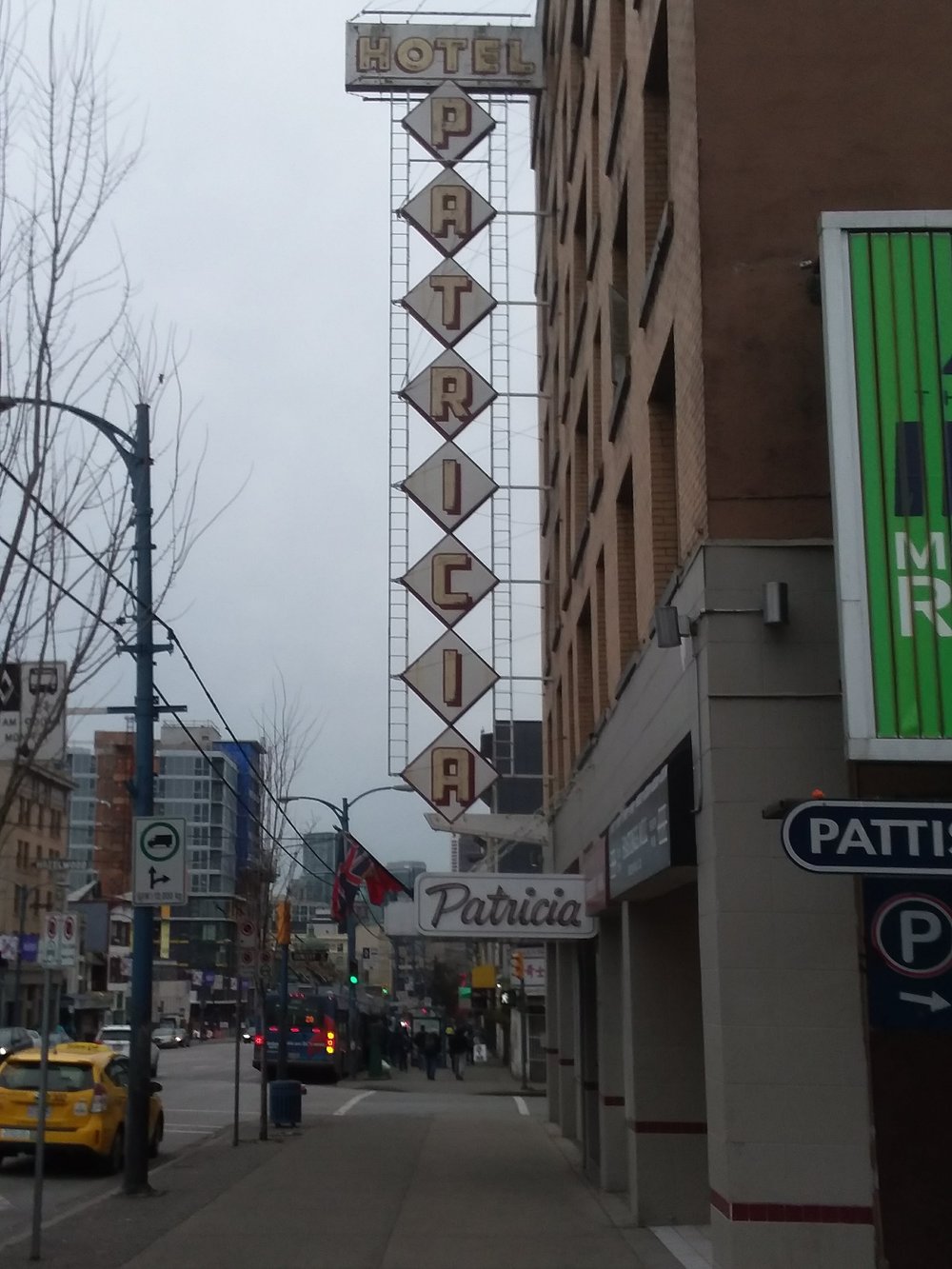
Back in my old digs on E. Hastings
To simply give money to a homeless person cannot inspire hope that life can change. In fact, it seems to me to inspire the opposite. But what about finding it by chance? What about wandering without hope, and then coming unexpectedly upon a $2 coin? Could it be a sign maybe that life is changing, because luck suddenly has? Probably not, but why does anyone pick up a penny thinking it’s a sign of good luck?
I put a “toonie” (the Canadian $2 coin; the $1 is called a “loonie”) on a nondescript bench I’d seen a homeless man sitting on earlier. I put another on a concrete pillar in front of the train station, where homeless men were awakening from the previous night. It wasn’t about me feeling good about doing a generous deed. It was about knowing what it feels like to have life filled with hope again. And hoping a toonie or two might convey that feeling to someone in want of it.
Or perhaps it’s just me being a loonie liberal.
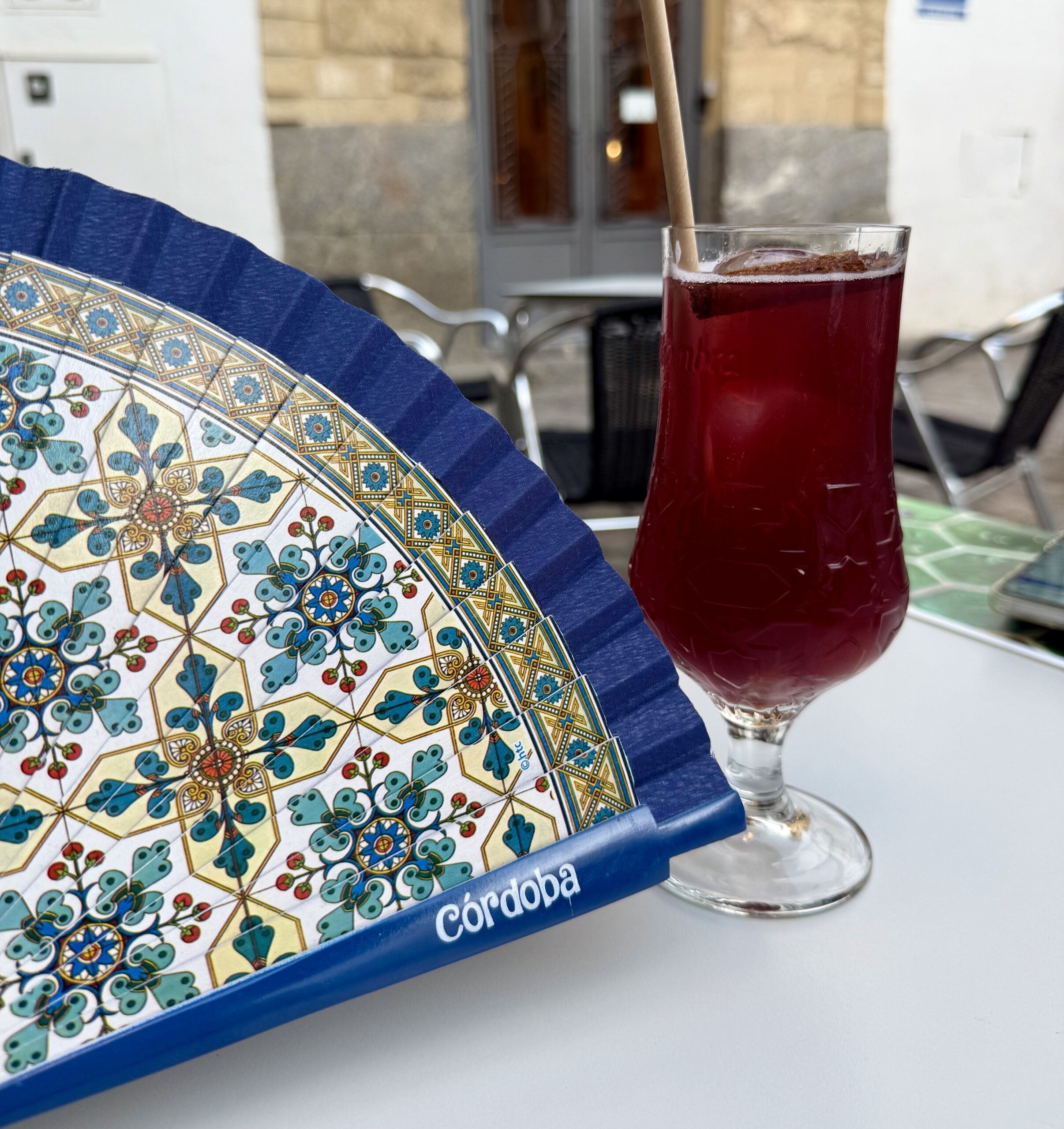
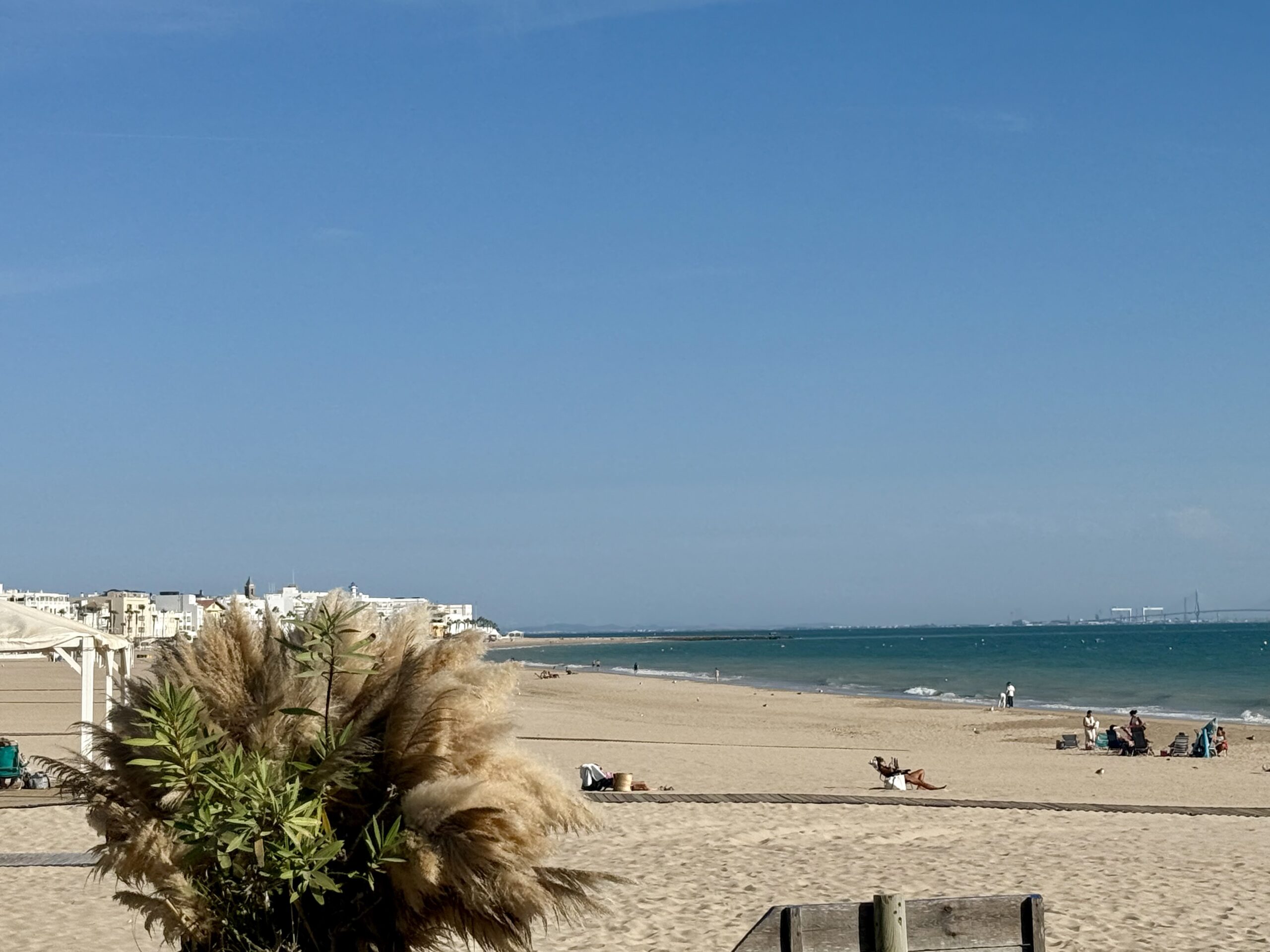

Wow, you are such a kind man! I hope many people follow your actions, lets have a liberation of love!
If you are ever in the UK, come for some <a href=”http://www.cambridgepuntcompany.co.uk”>Punting in Cambridge</a> along the River Cam – its a wonderful way to relax!
Thank you for your kind offer. Perhaps one day…
Reid Champagne